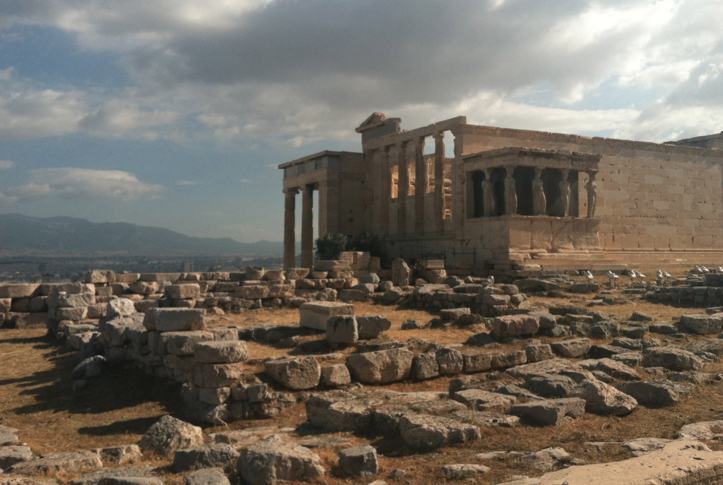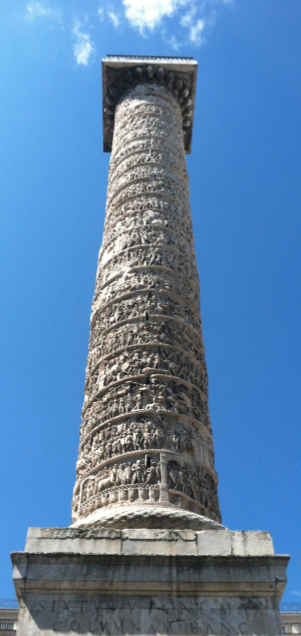Introduction to Classics at Skidmore
 "Past deeds are indeed a common legacy to us all. But to make proper use of them,
to conceive rightly their details and document them with polish is the gift of those
who think." —Isocrates
"Past deeds are indeed a common legacy to us all. But to make proper use of them,
to conceive rightly their details and document them with polish is the gift of those
who think." —Isocrates
Why study classics?
Historia vero testis temporum, lux veritatis, vita memoriae, magistra vitae, nuntia vetustatis ....To study antiquity is to study ourselves. The insights of Greek and Roman thinkers, artists, and writers have shaped Western thought for the last 2,000 years. When we read and study classical antiquity firsthand, we gain a deeper and richer understanding of the human experience.
"For history is the witness of the past, the light of truth, the survival of memory, the teacher of life, the message of antiquity..." —Cicero
The study of classical antiquity at Skidmore trains students to hone their analytical, creative, and literary abilities. It also prepares our majors and minors for careers in the dramatic arts, law, museum curating, medicine, publishing, editing, political science, teaching and business—in short, a solid foundation for life after Skidmore.
Special strengths
The interdisciplinary nature of classics is one of the greatest hallmarks of the program at Skidmore. Courses that apply to the major and minor include studies in Greek and Roman language, literature, art, archaeology, ethnicity, history, mythology, political theory, philosophy, race, religion, and technology. The classics faculty teaching these courses include some of the finest lecturers and scholars on campus.

Overseas studies
Although reading about Hannibal crossing the Alps has its merits, nothing beats studying the antiquities of ancient Greece and Rome in their original settings. We strongly encourage our students to study abroad in Greece, Italy, or England for one or two semesters during their junior year. Classics students live in Rome or Athens, tour extensively, and pursue their studies of ancient languages and cultures in modern settings. Students at the program in Bath, England, soak up the atmosphere of Roman Britain and read either Greek or Latin at Oxford University. Summer programs in Greece and Italy offer intensive six-week studies of the art, architecture, archaeology, history, and literature of ancient Greece or Rome. Classics students excavate at archaeological sites throughout the Mediterranean. Skidmore Classics faculty also occasionally lead students on two-week travel seminars in May to Rome, or to London and Athens, as part of semester-long on-campus courses.
Academic achievement
Students who have studied classical antiquity in depth have excelled overall in their Skidmore College careers. Classics majors and minors have received the prestigious Periclean Scholar Award for academic excellence, and others have been elected to the national honors society, Phi Beta Kappa, and our local chapter of Eta Sigma Phi, the national classics honors society. Our students also routinely participate in the College's annual Academic Festival and in Parilia, an upstate New York undergraduate classics symposium.
Life after Skidmore
After graduation, some of our students have earned graduate degrees and teach in high schools, colleges, and universities. Others have pursued careers as writers, journalists, financial analysts, screenwriters, entrepreneurs, librarians, programmers, researchers, scientists, and corporate vice-presidents, just to name a few fields. If you can use language deftly, evaluate evidence that is inadequate and overwhelming, conquer formidable intellectual hurdles, see things in new ways, and communicate your fresh ideas cogently, you are superbly prepared to face the challenging job market that awaits. Classics is one of the best ways for you to develop those skills.